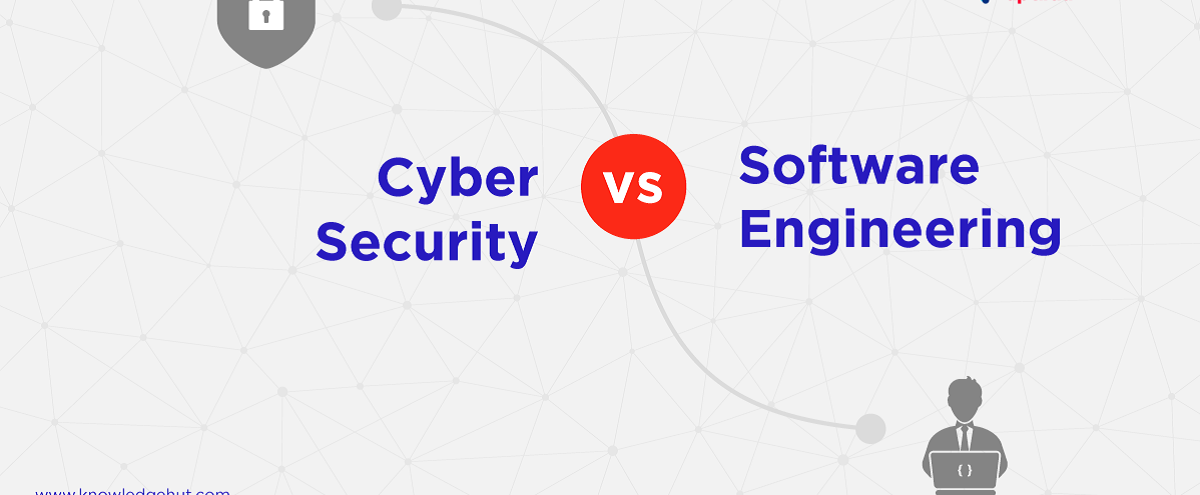Introduction
Cybersecurity has become a critical concern in the digital age as online threats continue to evolve and multiply. With the increasing frequency and sophistication of cyber attacks, there is a growing demand for skilled professionals who can safeguard our digital assets. From security analysts to incident responders, professionals in the field of cybersecurity play a vital role in protecting organizations and individuals from cyber threats.
In this article, we will explore the diverse roles and responsibilities of individuals working in cybersecurity. These professionals are highly trained experts who use their knowledge and skills to identify, prevent, and respond to cyber threats. By understanding their roles, we can gain insight into the vast and complex world of cybersecurity.
Whether it’s analyzing security systems, responding to incidents, or conducting penetration tests, cybersecurity professionals work tirelessly to assess vulnerabilities, implement effective security measures, and stay one step ahead of cybercriminals. They are the frontline defenders of our digital world, continuously adapting their strategies and techniques to protect information, systems, and networks.
While the specific tasks and responsibilities may vary depending on the role, there are certain core skills and qualifications that are essential for anyone pursuing a career in cybersecurity. These include a strong understanding of computer networks and systems, knowledge of programming languages, familiarity with security protocols, and the ability to think critically and analytically.
Additionally, cybersecurity professionals must possess excellent communication and problem-solving skills. They must be able to effectively communicate their findings and recommendations to stakeholders, as well as collaborate with other team members to develop and implement effective security strategies.
As technology continues to advance, so do the threats and challenges faced by the cybersecurity industry. As a result, professionals in this field must stay updated on the latest trends, technologies, and threats in order to effectively protect against them. Continuous learning and professional development are essential in a constantly evolving landscape where cybercriminals constantly innovate and adapt their strategies.
In the following sections, we will explore some of the key roles in cybersecurity, including security analysts, incident responders, penetration testers, security engineers, cryptographers, security consultants, security architects, vulnerability assessors, and security managers. Each of these roles brings a unique set of skills and expertise to the table, contributing to the overall security posture of organizations and individuals.
Security Analysts
Security analysts play a crucial role in the world of cybersecurity. Their primary responsibility is to monitor and analyze security systems and networks for any potential vulnerabilities or unauthorized access attempts. By assessing and identifying potential risks, security analysts can implement appropriate measures to mitigate and prevent cyber threats.
These professionals use various tools and techniques to detect, investigate, and respond to security incidents. They closely monitor network traffic, log files, and system alerts to identify any suspicious activities or anomalies that may indicate a security breach. Once an incident is detected, security analysts employ their expertise to analyze the nature of the threat, assess the impact, and determine the appropriate course of action.
One of the key tasks for security analysts is to conduct security audits and penetration tests to identify weaknesses and vulnerabilities in systems and networks. By simulating real-world cyber attacks, they test the effectiveness of existing security measures and identify areas for improvement.
In addition to monitoring and analyzing security systems, security analysts are also responsible for creating and implementing security policies and procedures. They work closely with other IT professionals to ensure that security protocols are designed and implemented effectively across the organization.
Security analysts must possess a strong technical background and a deep understanding of various security tools and technologies. They should be knowledgeable about security frameworks and standards such as ISO 27001 and NIST. Additionally, they need to stay up-to-date with the latest security trends and emerging threats in order to effectively protect against them.
Strong analytical and problem-solving skills are essential for security analysts. They must be able to analyze complex data, identify patterns, and make informed decisions in high-pressure situations. Effective communication skills are also vital, as security analysts often need to communicate their findings and recommendations to technical and non-technical stakeholders.
Overall, security analysts play a critical role in maintaining the security and integrity of systems and networks. By continuously monitoring and analyzing security systems, they help organizations stay prepared and respond effectively to cyber threats.
Incident Responders
Incident responders are the first line of defense when it comes to addressing and mitigating security incidents in the realm of cybersecurity. Their primary role is to identify, contain, and eradicate any security breaches or incidents that may compromise the integrity of digital systems and data.
When a security incident occurs, incident responders are responsible for quickly assessing the situation, gathering evidence, and taking immediate action to mitigate the impact. They are trained to handle high-stress situations and work under pressure to minimize the damage caused by cyber attacks.
One of the key tasks of incident responders is to investigate and analyze the incident to determine its cause and scope. This involves carefully examining logs, network traffic, and other relevant data to understand how the incident occurred and the extent of the damage. By identifying the root cause, incident responders can develop strategies to prevent similar incidents from happening in the future.
Incident responders work closely with other security professionals, such as security analysts and forensic experts, to collect and preserve evidence for further analysis and legal purposes. They also collaborate with IT teams to implement necessary security measures and patches to prevent further exploitation and ensure the recovery of affected systems.
In addition to their technical skills, incident responders must also possess strong communication and coordination abilities. They need to effectively communicate with stakeholders, including top management, IT staff, legal teams, and law enforcement, to provide timely updates and ensure a coordinated response to the incident.
As the landscape of cyber threats continues to evolve, incident responders need to stay up-to-date with the latest attack techniques and trends. They should continuously enhance their knowledge and skills to effectively respond to new and emerging threats. Adhering to industry best practices and frameworks such as the Incident Response Life Cycle (IRLC) or the NIST Computer Security Incident Handling Guide is vital to ensuring a systematic and efficient response to security incidents.
Overall, incident responders play a vital role in the cybersecurity ecosystem by swiftly addressing and containing security incidents. Their expertise and quick response help mitigate damages, protect sensitive data, and restore normal operations as soon as possible.
Penetration Testers
Penetration testers, also known as ethical hackers or white-hat hackers, are cybersecurity professionals who specialize in identifying and exploiting vulnerabilities in computer systems, networks, and applications. Their role is to simulate real-world cyber attacks to evaluate the security measures of an organization and identify potential weaknesses.
Penetration testers utilize various techniques and methodologies to conduct controlled and authorized attacks against systems and networks. By mimicking the tactics of malicious hackers, they attempt to breach security defenses and gain unauthorized access to sensitive information. The objective of penetration testing is to uncover vulnerabilities that could be exploited by cybercriminals and provide recommendations for strengthening the organization’s security posture.
During the testing process, penetration testers meticulously examine each layer of a system, including the network infrastructure, applications, and user interfaces. They use a combination of manual testing and automated tools to identify weaknesses, misconfigurations, and potential entry points for attackers.
Once vulnerabilities are discovered, penetration testers provide detailed reports outlining their findings and specific recommendations for remediation. These reports help organizations prioritize and address security issues to enhance their overall security posture.
To be effective in their role, penetration testers must possess a deep understanding of networking protocols, operating systems, and common security vulnerabilities. They must keep abreast of the latest threat landscape and continuously update their knowledge about new attack vectors and techniques.
Penetration testing requires a high level of technical proficiency and creativity. Testers often need to think outside the box and employ innovative methods to identify vulnerabilities that may not be apparent at first glance. Strong problem-solving skills and attention to detail are crucial for success in this field.
It’s important to note that penetration testing is a collaborative and ethical process. The aim is to help organizations improve their security, rather than cause harm or damage. Penetration testers adhere to strict ethical guidelines and legal frameworks to ensure responsible and controlled testing procedures.
Overall, penetration testers play a critical role in strengthening the security defenses of organizations. By proactively identifying vulnerabilities and providing recommendations for improvement, they help organizations stay one step ahead of cyber threats and safeguard their valuable data and systems.
Security Engineers
Security engineers are the architects of secure systems and play a crucial role in designing, implementing, and maintaining robust cybersecurity infrastructures. They are responsible for creating and deploying effective security measures that protect networks, systems, and data from potential threats.
One of the primary responsibilities of security engineers is to analyze existing systems and identify potential vulnerabilities. They work closely with other IT professionals to design and implement security controls and protocols that mitigate risks and ensure the confidentiality, integrity, and availability of information.
Security engineers are involved in all stages of the system development lifecycle. They collaborate with software developers, network administrators, and other stakeholders to integrate security requirements and best practices into the design and implementation of systems and applications.
These professionals possess a deep understanding of security technologies and tools. They are responsible for the configuration and management of firewalls, intrusion detection and prevention systems, antivirus software, encryption tools, and other security-related products.
In addition to deploying and managing security technologies, security engineers are tasked with monitoring and analyzing security logs and events to detect and respond to potential incidents. They work on incident response teams, investigating security breaches and implementing necessary measures to prevent further damage.
To excel in this role, security engineers must stay up-to-date with the latest advancements in cybersecurity. They continuously expand their knowledge and skills by staying informed about emerging threats, industry regulations, and evolving technologies.
Strong problem-solving and critical-thinking skills are essential for security engineers. They must be able to analyze complex systems, anticipate potential threats, and develop creative solutions to mitigate risks.
Communication skills are also important for security engineers, as they often need to collaborate with other teams, such as developers and system administrators, to implement security measures. They may also be involved in providing security training and awareness programs to educate employees about safe computing practices.
Overall, security engineers play a vital role in building secure systems and protecting organizations from cyber threats. They combine their technical expertise, analytical skills, and knowledge of cybersecurity best practices to ensure the confidentiality, integrity, and availability of critical information assets.
Cryptographers
Cryptographers are highly skilled professionals who specialize in creating and implementing cryptographic algorithms and protocols to secure sensitive information. Their work is essential in maintaining the confidentiality and integrity of data in various industries, including finance, healthcare, and communications.
One of the primary responsibilities of cryptographers is to design and develop encryption algorithms that convert plaintext data into ciphertext, making it unreadable to unauthorized individuals. They use complex mathematical concepts and computational techniques to create robust cryptographic algorithms that can withstand potential attacks.
Cryptographers also play a vital role in analyzing and testing existing encryption algorithms to ensure their security and resilience against emerging threats. They continuously evaluate the strength of cryptographic systems and adapt their algorithms to counteract evolving attack methods.
Besides the development and analysis of encryption algorithms, cryptographers are involved in the implementation and deployment of cryptographic protocols and systems. They work closely with security engineers and software developers to integrate encryption mechanisms into applications, networks, and communication channels.
To excel in their field, cryptographers must possess a strong mathematical background, particularly in areas such as number theory, abstract algebra, and probability theory. These mathematical concepts are fundamental to understanding and developing cryptographic algorithms.
Strong analytical and problem-solving skills are paramount for cryptographers, as they must identify and anticipate potential vulnerabilities and countermeasures in encryption systems. They need to be able to analyze complex algorithms and cryptographic protocols to ensure their security.
Additionally, cryptographers must stay up-to-date with the latest advancements in both mathematics and computer science. They need to be aware of emerging cryptographic techniques and protocols, as well as potential vulnerabilities and attacks.
Effective communication skills are also essential for cryptographers, as they often need to work collaboratively with other professionals and communicate complex cryptographic concepts to non-technical stakeholders.
Overall, cryptographers are vital to the field of cybersecurity, ensuring the confidentiality of sensitive information through the development and implementation of cryptographic algorithms and protocols. Their expertise and dedication in securing data are crucial in today’s interconnected and data-driven world.
Security Consultants
Security consultants are professionals who provide expert advice and guidance to organizations on all aspects of cybersecurity. Their role is to assess the security posture of an organization, identify vulnerabilities and risks, and recommend appropriate measures to enhance security and protect against potential threats.
One of the primary responsibilities of security consultants is to conduct comprehensive security assessments. They analyze an organization’s systems, networks, policies, and procedures to identify weaknesses and gaps in security. This involves evaluating factors such as access controls, data protection mechanisms, and compliance with regulations and industry standards.
Based on their findings, security consultants develop tailored recommendations and strategies to mitigate risks and enhance security. They provide guidance on implementing security controls, improving security awareness among employees, and ensuring compliance with applicable laws and regulations.
Security consultants also play a crucial role in developing incident response plans and conducting tabletop exercises to test the efficacy of these plans. They help organizations prepare for potential security incidents and establish effective processes for detecting, responding to, and recovering from cyber attacks.
In addition to their technical expertise, security consultants possess strong analytical and problem-solving skills. They are able to identify and assess potential risks from both a technological and a business perspective. They consider factors such as the organization’s industry, size, and existing security infrastructure to provide customized recommendations.
Effective communication and presentation skills are essential for security consultants. They work closely with clients to understand their specific needs and goals, and they communicate complex technical concepts in a clear and concise manner. They also provide training and awareness programs to educate employees about cybersecurity best practices.
Security consultants must stay up-to-date with the latest cybersecurity trends and emerging threats. They continuously enhance their knowledge and skills through professional development, research, and industry certifications to ensure they can offer the most relevant and effective guidance to organizations.
Overall, security consultants play a vital role in helping organizations navigate the complex landscape of cybersecurity. Their expertise and guidance assist organizations in strengthening their security defenses, mitigating risks, and ensuring the protection of valuable assets and sensitive information.
Security Architects
Security architects are essential professionals in the field of cybersecurity who are responsible for designing and implementing secure systems, networks, and infrastructures. They play a crucial role in ensuring that organizations have robust security measures in place to protect against potential threats.
One of the primary responsibilities of security architects is to analyze an organization’s security requirements and develop comprehensive security architectures. They consider factors such as business objectives, regulatory compliance, and industry best practices to design systems that effectively safeguard sensitive information.
Security architects collaborate closely with other IT professionals and stakeholders to integrate security controls and protocols into the overall system architecture. They work alongside network administrators, software developers, and system engineers to ensure that security measures are seamlessly integrated into the design and implementation of systems and applications.
These professionals possess a deep understanding of security technologies, protocols, and best practices. They stay up-to-date with the latest advancements in the cybersecurity field and evaluate emerging technologies to determine their applicability and security implications.
Security architects are responsible for conducting risk assessments and threat modeling to identify potential vulnerabilities and areas of concern. Based on their findings, they recommend and implement appropriate security controls and measures to mitigate risks and protect against potential threats.
Strong technical skills are vital for security architects. They must have a solid understanding of network security, encryption algorithms, access control mechanisms, and other security technologies. Additionally, they should be knowledgeable about industry standards and frameworks, such as ISO 27001, NIST, and CIS benchmarks.
Effective communication skills are crucial for security architects. They need to clearly communicate complex security concepts and recommendations to technical and non-technical stakeholders. They also collaborate with teams across the organization to ensure that security requirements are understood and implemented effectively.
Security architects must be proactive and forward-thinking. They anticipate emerging threats and trends, and develop strategies and technologies to mitigate future risks. They continuously assess and improve security architectures to address evolving threats and ensure the ongoing protection of organizational assets.
Overall, security architects are instrumental in designing and implementing secure systems, networks, and infrastructures. Their expertise and attention to detail help organizations establish strong security foundations and protect against potential cybersecurity threats.
Vulnerability Assessors
Vulnerability assessors, also known as vulnerability analysts or testers, play a critical role in identifying and evaluating vulnerabilities in systems, networks, and applications. Their main objective is to uncover weaknesses that could be exploited by malicious actors and provide recommendations to mitigate those vulnerabilities.
One of the primary responsibilities of vulnerability assessors is to conduct thorough assessments of an organization’s infrastructure. They use a combination of automated tools and manual techniques to scan networks, applications, and hardware devices for potential vulnerabilities.
By analyzing the results of their assessments, vulnerability assessors categorize the vulnerabilities based on their severity and potential impact. They develop comprehensive reports that outline the specific vulnerabilities discovered, along with recommendations for remediation.
Vulnerability assessors also play an important role in prioritizing vulnerabilities based on their risk level. They work closely with IT teams and management to determine which vulnerabilities need immediate attention and which can be addressed over time.
In addition to conducting vulnerability assessments, these professionals provide guidance on best practices for secure coding and configuration. They assist developers and system administrators in implementing the necessary security controls and measures to mitigate vulnerabilities.
Strong technical skills are essential for vulnerability assessors. They need to have a deep understanding of various operating systems, network protocols, and security technologies. They should also be proficient in using vulnerability scanning tools and have experience in exploit testing.
Attention to detail is crucial for vulnerability assessors, as they must be able to identify even the most subtle vulnerabilities that may be overlooked by automated tools. They employ manual testing techniques to simulate real-world attacks and uncover hidden weaknesses.
Effective communication skills are vital for vulnerability assessors. They must be able to clearly communicate technical information to different stakeholders, including developers, system administrators, and management. They provide detailed reports that explain the vulnerabilities discovered and the steps needed to remediate them.
Vulnerability assessors must stay up-to-date with the latest security trends and emerging threats. They continuously expand their knowledge and skills through regular training and research, ensuring that they are equipped to identify and mitigate new vulnerabilities.
Overall, vulnerability assessors play a crucial role in ensuring the security of organizations’ digital assets. By conducting comprehensive assessments, they help organizations identify and rectify vulnerabilities, mitigating potential risks and strengthening their overall security posture.
Security Managers
Security managers are key leaders in the field of cybersecurity who are responsible for overseeing and managing the overall security posture of an organization. They play a crucial role in developing and implementing security policies, strategies, and procedures to protect against potential threats.
One of the primary responsibilities of security managers is to formulate and enforce security policies and procedures. They develop guidelines that outline the organization’s approach to security, including access controls, incident response, disaster recovery, and overall risk management.
Security managers work closely with stakeholders from various departments to ensure that security measures are effectively implemented across the organization. They collaborate with IT teams, legal departments, HR departments, and senior management to align security objectives with business goals and compliance requirements.
These professionals are responsible for assessing and managing risks. They analyze the organization’s vulnerabilities and potential threats to develop risk management strategies. They also stay informed about the evolving threat landscape to proactively identify and address emerging risks.
Security managers play a crucial role in incident response and management. They develop and test incident response plans, coordinate response efforts during security incidents, and oversee post-incident analysis and remediation. They work closely with other security professionals and stakeholders to ensure swift and effective response and recovery.
Effective communication and leadership skills are essential for security managers. They need to clearly communicate security objectives and requirements to employees at all levels of the organization. They also provide security training and awareness programs to educate employees about best practices and their roles in maintaining security.
Security managers must stay current with the latest cybersecurity trends, emerging threats, and regulatory developments. They continuously develop their knowledge and expertise through professional development programs and certifications to effectively manage security initiatives and stay ahead of potential risks.
Strong analytical and problem-solving skills are crucial for security managers. They need to be able to analyze complex security issues, assess potential risks, and develop effective strategies and solutions. They must also possess excellent decision-making skills, as they often need to make critical decisions in high-pressure situations.
Overall, security managers play a critical role in protecting organizations from cyber threats. Their leadership, expertise, and dedication to implementing effective security measures are essential in safeguarding sensitive data and maintaining the trust of stakeholders.
Conclusion
In today’s digital landscape, cybersecurity is of utmost importance. The roles and responsibilities of professionals in the cybersecurity field are diverse and crucial in protecting organizations and individuals against cyber threats. From security analysts and incident responders to penetration testers and security managers, each role plays a vital part in creating a secure digital environment.
Security analysts are the vigilant protectors who monitor and analyze security systems, detect incidents, and implement measures to prevent attacks. Incident responders are the rapid responders who swiftly handle and mitigate security incidents, minimizing their impact and restoring normalcy. Penetration testers are the ethical hackers who identify vulnerabilities and weaknesses in systems to improve overall security. Security engineers are the architects who design and implement secure systems and networks, ensuring robust defense mechanisms. Cryptographers create and implement cryptographic algorithms to protect sensitive information from unauthorized access.
Security consultants offer their expertise and guidance, assessing organizations’ security postures and recommending measures to strengthen defenses. Security architects develop comprehensive and effective security architectures, integrating security controls into systems and networks. Vulnerability assessors identify and evaluate vulnerabilities, providing recommendations for remediation. Security managers oversee the organization’s overall security strategy, ensuring compliance, managing risks, and coordinating incident response.
In conclusion, the collaborative efforts of these professionals are necessary to combat the ever-evolving landscape of cyber threats. By leveraging their technical expertise, analytical skills, and industry knowledge, these professionals help organizations maintain the confidentiality, integrity, and availability of their data and systems.
The field of cybersecurity is dynamic, with new challenges and threats emerging constantly. Continuous learning, professional development, and staying updated on the latest trends are essential for these professionals to stay ahead of potential risks and protect against evolving threats.
As organizations and individuals become increasingly reliant on technology, the demand for skilled cybersecurity professionals continues to grow. By understanding the roles and responsibilities of these professionals, we can better appreciate their contributions in safeguarding our digital world.

























